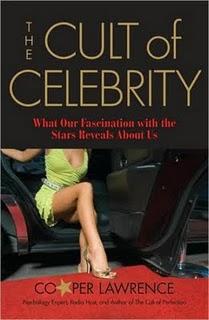The Cult of Celebrity: What Our Fascination with the Stars Reveals About Us

I must admit that I have a minor addiction to so-called celebrity news. I’ll read People magazine at the gym and admit to having a fascination with hearing more about my favorite stars. This addiction is explained in The Cult of Celebrity.
The book breaks down our addiction by first equating it to worship. Celebrities are, to some extent, deified. They are put on a pedestal, separate and special from the rest of us. They can get away with all sorts of things that us ordinary mortals cannot. Part of the draw, as Lawrence explains, is the charisma that most celebrities have in spades.
We are inundated with celebrity culture in today’s world, and as Lawrence says, “The number of people we know in the ‘artificial world’—actors, singers, sportspeople, TV hosts—is much larger than the number of people we know in the real world.” We’re drawn to know more about celebrities because of a kind of personal connection we may feel with them; the relationship we have with a celebrity (all one-sided) is easier than many of our real life relationships. Yet, our connection to a celebrity can bring us closer to those around us. When in doubt, you can often gossip about the latest celebrity info with an acquaintance and find common ground.
Not only do we love celebrities, but many of the teens and twenty-year-olds today want to be celebrities. Our culture has emphasized the importance of fame, and many people are desperate for it. We think it is a quick fix to our lives, and that when we’re discovered, all our dreams will come true. Why else would shows like American Idol and America’s Got Talent be so popular?
Thankfully, Lawrence addresses the issue of young girls and celebrity. Films, TV shows, music, magazines, advertisements, and books are everywhere that cater to the young consumers desire to be famous and beautiful. Much of this emphasizes the purely superficial as the most important. The book has tips and hints for parents to provide positive parenting for children, including how to become the role model for your children.
The complicated cult of celebrity examined by Lawrence also encompasses celebrity endorsements and celebrities doing good. More people know about the crisis in Darfur thanks to celebrities like George Clooney; whether this is a good or bad thing is another issue. Not simply revealing her opinions on celebrity, Lawrence uses psychologists, philosophers, academics and researchers to support the points she makes.